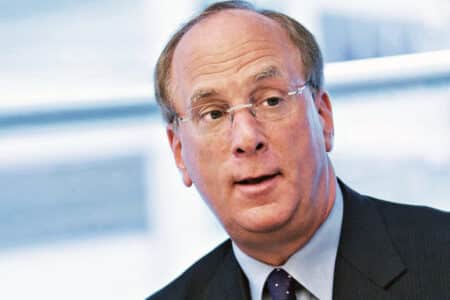The founder and CEO of BlackRock, the word’s biggest asset manager, has called the lack of retirement funding a “once in a decade problem”. In his iconic annual letter to investors, released earlier this week, he holds up US secondary markets as an example (and an imperative) of how the world should be funding longer lives, financing larger infrastructure projects, and boosting private markets.
The demographic crisis

“As populations age, building retirement savings has never been more urgent,” stressed Fink, noting that by 2050, one in six people globally will be over the age of 65, up from one in 11 in 2019. “To support them, governments are going to have to prioritize building out robust capital markets like the US has.”
The answer, he urges, is in effective and liquid secondary markets – a pool that helped the US rebound faster than almost any other country from the 2008 financial crisis. In other regions such as Europe, he said, because most assets were kept in banks, economies froze as banks were forced to shrink their balance sheets. “Because the US had a more robust secondary pool of money, the nation was able to recover much more quickly. Today public equities and bonds provide over 70% of financing for non-financial corporations in the US – more than any other country in the world.”
Fink downplays the role of mortgage-backed securities in the 2008 financial crisis. “While the excesses of mortgage securitization contributed to the crash in 2008… the broader underlying trend — the expansion of the capital markets — was still very helpful for the American economy,” he said. And he warned against countries relying too heavily on their banking systems – citing China, where he said 65% of companies rely on bank loans for their financing; or India, where the economy relies heavily on gold. “Gold? It just sits in a safe. It can be a good store of value, but gold doesn’t generate economic growth.”
Fink also warns against the danger of helping people live longer lives without helping them to finance those extra years. He calls the lack of retirement funding a problem “so big and so urgent” that corporate and government leaders should “stop business as usual… step out of their silos… and sit around the same table to find a solution”.
Currently, more than half the assets BlackRock manages are for retirement – but Fink warns that the lengths of these retirements are verging on the unsustainable. “I do think it’s a bit crazy that our anchor idea for the right retirement age — 65 years old — originates from the time of the Ottoman Empire.”
In the US the situation is undeniably urgent. According to 2022 data from the US Census Bureau, nearly half of Americans aged 55 to 65 reported not having a single dollar saved in personal retirement account. Fink suggests tools like mandatory pension savings, workplace investment schemes, auto-enrollment and target date funds could help. “As a nation, we should do everything we can to make retirement investing more automatic for workers.” He also suggests that more should be done to encourage retirees to spend their savings, in order to boost the economy.
But the biggest problem, believes Fink, is the disenfranchisement of the younger generations, whom he believes have lost hope in their own futures. “It’s no wonder [they] are so economically anxious. They believe my generation — the Baby Boomers — have focused on their own financial well-being to the detriment of who comes next. And in the case of retirement, they’re right.
“Young people have lost trust in older generations. The burden is on us to get it back. And maybe investing for their long-term goals, including retirement, isn’t such a bad place to begin.”
The energy question
In the second part of his letter, Fink asks how we are going to build the massive amount of energy infrastructure the world needs as countries decarbonize and digitize their economies. “The capital markets can help countries meet their energy goals, including decarbonization, in an affordable way.”
He cites the enormous infrastructure projects ongoing, and references the transformation of BlackRock itself, kicked off by its recent acquisition of Global Infrastructure Partners (GIP), the owners of the UK’s Gatwick Airport.
In 2024-25, the firm plans to continue its theme of infrastructure investment and partnership, as well as focusing on its private markets strategies – which saw US$14bn of net inflows in 2023, driven by infrastructure and private credit. “We continue to expect these categories to be our primary growth drivers within alternatives in the coming years,” says Fink.
In Europe, he cites BlackRock’s 2023 partnership with German fintech Upvest, which provides trading, settlement and custody infrastructure for digital wealth managemen and which Fink believes will help drive innovation in how Europeans access markets and make it cheaper and simpler to start investing.
Tech strength
Finally, he cites Aladdin – calling it the “language of portfolios” and noting that in 2023, BlackRock generated US$1.5bn in technology services revenue. “Clients are looking to grow and expand with Aladdin, reflected in strong harvesting activity, with over 50% of Aladdin sales being multi-product.”
Since its IPO in 1999, BlackRock has generated returns of 9,000% for its shareholders – well in excess of the S&P return of 490% over the same period. To continue this growth, Fink highlights a future strategy centred on “growing Aladdin, ETFs, and private markets, and keeping alpha at the heart of BlackRock”.
(This article first appeared on Best Execution, a Markets Media Group publication.)
